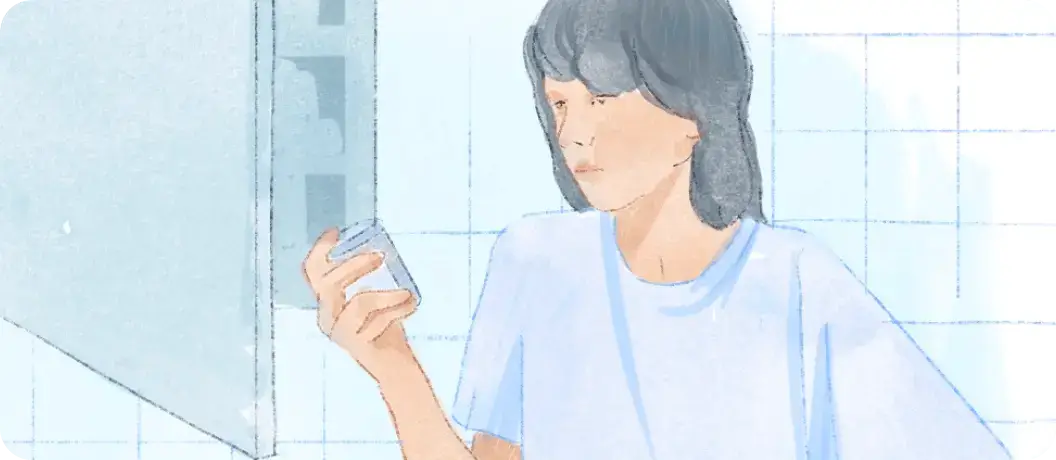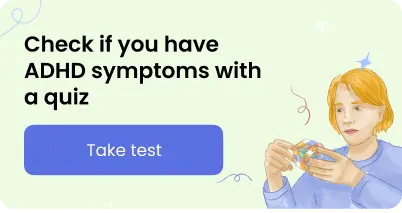Podcast name
Have ADHD and Take Antidepressants?
Have you ever felt like your brain’s playlist is stuck on shuffle? That’s pretty much life with ADHD, right? Now mix in the mood remix that comes with antidepressants, and you’ve got yourself a party—or is it a paradox?
Anyway, it’s super important, so let’s break it down.
Disclaimer: Your doctor or a mental health professional who specializes in adult ADHD should be your first choice if you have questions or concerns about your medications. They can provide personalized advice that considers your unique situation.
Understanding ADHD and antidepressants
Having ADHD isn’t just about bouncing off the walls or spacing out during boring meetings (although those meetings really should be emails, amirite?). It’s a blend of unique thought patterns and behaviors that make focusing a bit of a quest.
What’s more, research shows that up to 55% of adults with ADHD can have depression, too. That’s why antidepressants are sometimes prescribed to treat ADHD, but the FDA has not approved them for that specific use.
You might know Zoloft, Prozac or Lexapro by their first name. These are common names for medicines that people with a wide range of emotions keep in their cabinets.
None of them work as well as psychostimulants for treating cognitive and attentional symptoms of ADHD, but they can help calm down hyperactive and impulsive behavior. It can be the following:
- Prozac (fluoxetine)
- Zoloft (sertraline)
- Lexapro (escitalopram)
- Cymbalta (duloxetine) and Effexor (venlafaxine)
P.S. If you have difficulty concentrating, are impulsive, forgetful, and have organizational difficulties that interfere with your daily life or relationships, you should at least take a free ADHD test online.
Prozac for ADHD
One of the SSRIs on the market that might be prescribed to ADHD patients for depressive symptoms is Prozac, also aka fluoxetine. For some people, Prozac may help them control their emotions and lessen the effects of both ADHD and depression.
What matters most, though, is whether it might make ADHD symptoms worse. This makes it even more important to have a doctor check on you.
Zoloft and ADHD
A selective serotonin reuptake inhibitor (SSRI), like Zoloft (sertraline), is often prescribed for people who are depressed.
But does Zoloft (sertraline) help with ADHD? For some adults, this drug has been shown to alleviate symptoms of inattention and help manage co-existing anxiety or depression.
Lexapro and ADHD
Lexapro, or escitalopram, is yet another SSRI that’s gaining attention for its off-label use in treating ADHD symptoms. People often wonder things like, “Does Lexapro (escitalopram) help with ADHD?”
While it can help with conditions linked to ADHD, like anxiety, you should talk to your doctor about whether or not it is right for you and how well it works.
Cymbalta and Effexor for ADHD
In exploring medication options for ADHD, SNRIs such as Cymbalta (duloxetine) and Effexor (venlafaxine) may also enter the conversation (It’s worth noting there’s a better research base for SNRIs than SSRIs).
These medications increase levels of serotonin and norepinephrine in the brain, which can help with ADHD symptoms in some cases.

The potential risks of taking antidepressants when you have ADHD
The combination of ADHD and antidepressants is not without potential risks. Issues such as “Can antidepressants make ADHD worse?” and “SSRI making ADHD worse” are genuine concerns.
Some patients may experience heightened symptoms of restlessness or attention difficulties. Additionally, you should carefully think about any other medicines you are taking to avoid adverse reactions.
Key takeaways
- SSRIs can sometimes be used off-label for managing certain symptoms of ADHD.
- Antidepressants may work better for people who have both depression and anxiety.
- Licensed medical professionals should carefully monitor the effects and potential side effects of medicines.
Disclaimer
This article is for general informative and self-discovery purposes only. It should not replace expert guidance from professionals.
Any action you take in response to the information in this article, whether directly or indirectly, is solely your responsibility and is done at your own risk. Breeze content team and its mental health experts disclaim any liability, loss, or risk, personal, professional, or otherwise, which may result from the use and/or application of any content.
Always consult your doctor or other certified health practitioner with any medical questions or concerns
Breeze articles exclusively cite trusted sources, such as academic research institutions and medical associations, including research and studies from PubMed, ResearchGate, or similar databases. Examine our subject-matter editors and editorial process to see how we verify facts and maintain the accuracy, reliability, and trustworthiness of our material.
Was this article helpful?




